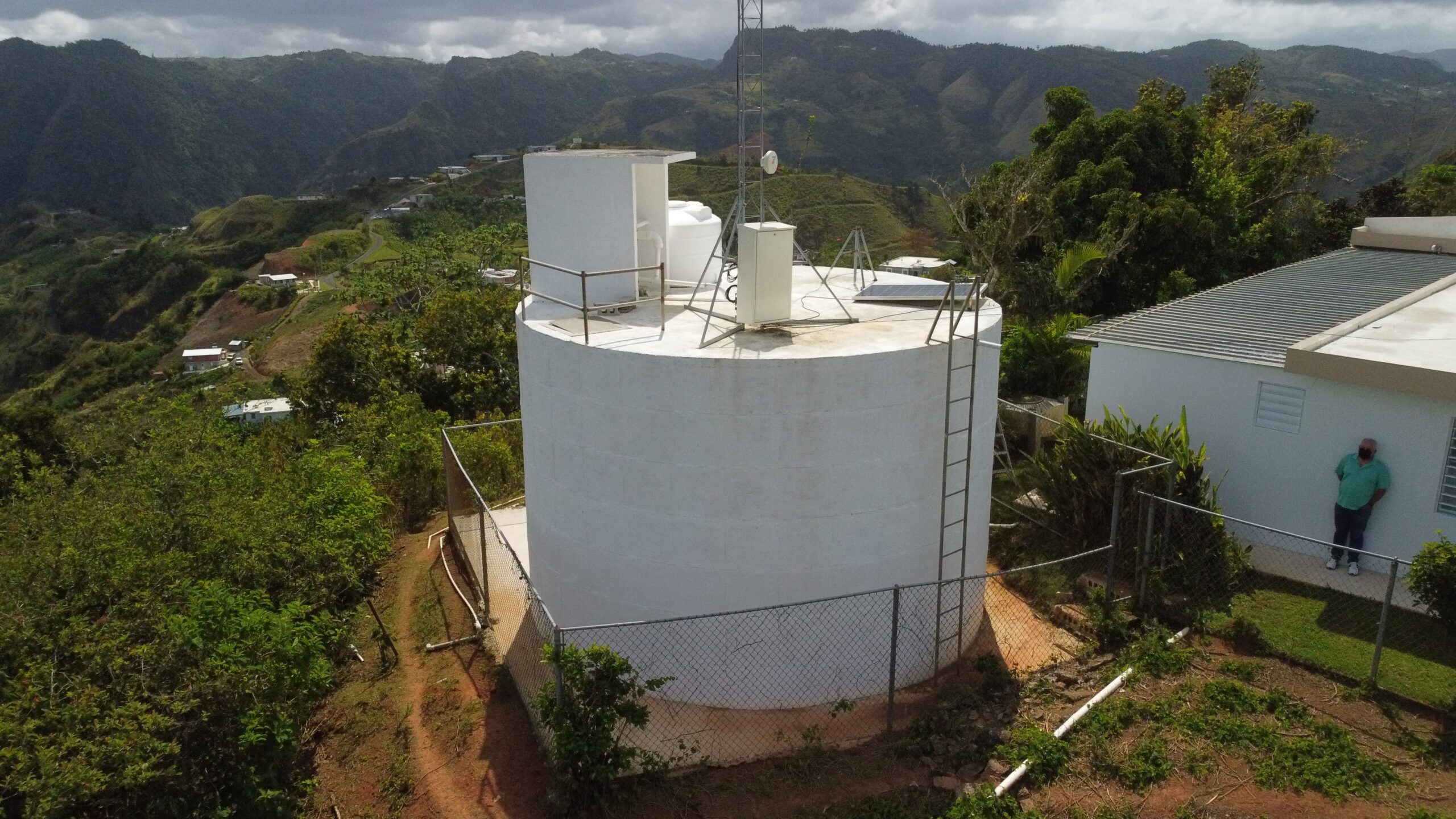San Juan | Monday, April 19, 2021 | Fundación Comunitaria de Puerto Rico (FCPR) announced today the launch of the first phase of the energy redundancy project for community aqueducts on the island, which will include the installation of solar systems and emergency generators to guarantee their uninterrupted operation and, therefore, the supply of drinking water to thousands of families. The work began with the community evaluation process, after the signing in December of a grant agreement for funds with the Central Office for Recovery, Reconstruction and Resilience (COR3), under the Risk Mitigation program of the Federal Agency for Management Emergency Department (FEMA).
The first phase, scheduled to end in February 2022, follows the authorization of $ 1.7 million from a $ 25 million grant. During this first phase, data is being collected on the communities and their drinking water systems, as well as the prevailing environmental conditions and their possible impact and requirements. A viability analysis is also being carried out to determine types of equipment, preliminary design of the redundancy system and its location. In addition, community participation and training processes are developed, as well as work plans for each community. Initial contact has already been established with 160 communities and visits to 50 community aqueducts have been made – the systems were grouped into four regions: south-west, south-central, central, and south-east.
In Puerto Rico there are about 242 community aqueducts, located in 43 municipalities and in remote rural and mountainous areas; and they supply drinking water to 3% of the population – approximately 120,000 people. The infrastructure of the Puerto Rico Aqueduct and Sewer Authority (PRASA) does not provide service to these areas, so these systems are commonly known as NON-PRASA systems.
“After an arduous recruitment process that included the selection of regional managers and community coordinators, the FCPR began in March the first phase of this project of access to drinking water using energy redundancy for vulnerable communities, with the determination to guarantee social justice, equity and community prosperity. Thus, we are preventing future emergencies from putting the continuation of this vital service at risk. We appreciate the confidence that government agencies gave to our proposal, as well as the contribution of donors to the projects that we have executed as part of our Agua ‘Pa Nosotros program”, said the president and chief executive officer of the FCPR, Dr. Nelson I Columbus Tarrats.
The second phase, scheduled to begin in March 2022, includes the installation of high-efficiency water pumping equipment with the capacity to operate with solar energy, electricity from the Electric Power Authority or generators; and installation of photovoltaic equipment to generate solar energy and an emergency generator with an integrated storage tank for fuel. In addition to the non-interruption of the service, the completion of the project will reduce health risks and vulnerabilities associated with the lack of drinking water, particularly during disasters and emergency situations; strengthen community resilience and disaster preparedness; improve access to safe drinking water; and it will empower communities by strengthening their capacities.
This project is one of those developed by the FCPR since the end of 2017 through the Agua Pa ‘Nosotros program, focused on providing access to drinking water, strengthening these communities in four essential areas of their community aqueducts: infrastructure, community organization, administration and compliance with regulatory agencies. Prior to the start of this project, Agua Pa ’Nosotros has had relations with 102 communities with community aqueducts, of which about 60 aqueducts have received technical assistance; 20 communities awarded with philanthropic inversions to improve their infrastructure; two emergency centers have been developed in communities with community aqueducts (Corcovada, in Añasco, and Las Corujas, in Aguas Buenas); and 13 community aqueducts received donations to support community actions against the Covid-19 pandemic. Agua Pa ’Nosotros has had the following allies and donors: Hispanic Federation, Global Giving, Oxfam, Conrad N. Hilton Foundation and Center for Disaster Philanthropy.
To learn more about the project, you can contact 787-349-7652 or write to [email protected]. More information can also be found in this flyer.
PHOTO The image shows the tank of Corporación Saltos Pellejas in Orocovis.

